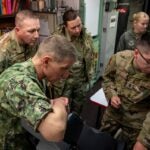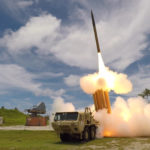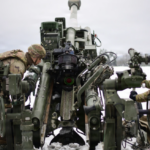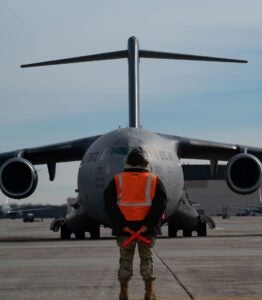
By Charlie Precourt, Defense Opinion Writer.
The debate over who should be in charge of the nation’s airspace returns every few years, yet those who argue for air traffic control privatization have never successfully answered a core question: In a rapidly evolving airspace environment vital to national security, how would this serve the public’s interest?
Proponents of some form of non-government air traffic control (ATC) system always cite privatized models used in Canada, the U.K. or Europe, even though none can match ours for size, diversity and complexity – a gap between those systems and ours that is only likely to grow in the coming years.
As a result, it is essential to revisit why the U.S. ATC system as currently structured preserves America’s leadership in aviation, including safety, even as we welcome a long-sought overhaul of the ATC recently signed into law.
This spring, the aviation industry united for the first time since it advocated for creation of the Airport and Airways Trust Fund in 1970. It serves as the primary source of funds for the Federal Aviation Administration. It is financed primarily by an array of excise taxes paid by all users of the national airspace system, from business and general aviation operators to airline travelers, international and domestic and charges on air cargo waybills and aviation fuel purchases.
Big support for modernization
More than 50 aviation organizations, including the Aerospace Industries Association, Airports Council International-North America and Airlines for America, created the Modern Skies Coalition to rally support for the administration’s plan to expand ATC facilities, upgrade infrastructure and equipment and provide for additional controller staffing and training.
U.S. Transportation Secretary Sean Duffy announced a plan in May to solicit proposals for ATC infrastructure modernization, covering components that include communications, surveillance, automation and new facilities. The government is expected to make contract awards by the end of the fiscal year, Sept. 30. The administration’s plan made no mention of abandoning our public system.
Why government is uniquely qualified
Many of us with years of experience as pilots understand that certain functions are by nature or necessity best handled by government, such as safety-critical airspace operations. Several factors make government operation a necessity.
First, new flight technologies are rapidly emerging, from unmanned aircraft systems (drones) for military, business and commercial space operations, to electric vertical-take-off and-landing (eVTOL) aircraft. All require advances in monitoring and control to ensure more varied traffic can coexist safely and assure public safety.
Second, U.S. airspace is already the leader in size and complexity, with five of the 11 busiest airports in the world last year, based on Airports Council International data. This adds to the need for more layered and intense coordination to avoid complacency and manage safety risks.
Third, U.S. airspace is the global leader in diversity of users, with more flights by general aviation operators, along with increases in airline, cargo and commercial space traffic.
Finally, our airspace marks vital borders, requiring careful monitoring of civilian operations alongside national security and military needs, such as the Trump administration’s recently proposed missile defense system known as “golden dome.” Managing national security interests is an essential government function, and thus a public trust.
Perhaps a good way to understand U.S success in aviation that sits on this bedrock of safety is to consider the occurrence of an annual event every summer at Wittman Regional Airport and surrounding airfields in Wisconsin.
There, the Experimental Aircraft Association (EAA) AirVenture Oshkosh becomes a mega airport to host a unique air show. Last month it drew more than 704,000 people from 94 countries and 10,000 aircraft to the show, resulting in 16,246 aircraft operations, or roughly 108 takeoffs and landings per hour.
Only in America. And only because of safety-critical airspace operations in public hands.
My passion is flying, as my background attests, but safety is at the core of every job I have held and every mission I have undertaken for more than 40 years. Airspace safety is unique. It requires the strong hand of government.
Charles Precourt is chair of the Citation Jet Pilots Safety Committee, a member of the board of directors of the Experimental Aircraft Association and National Business Aviation Association, a four-time NASA space shuttle astronaut, retired vice president and general manager of Northrop Grumman Propulsion Systems and a retired U.S. Air Force test pilot.

Are you a Defense Daily reader with a thought-provoking opinion on a defense issue? We want to hear from you.
- We welcome submissions of opinion articles on national security, defense spending, weapons systems and related areas.
- We welcome submissions from lawmakers, administration officials, industry representatives, military officials, academics, think tank experts, congressional candidates, international experts and others on issues important to the national defense community.
- We welcome a diverse range of opinions all along the political spectrum.
- Email: editor@DefenseOpinion.com













